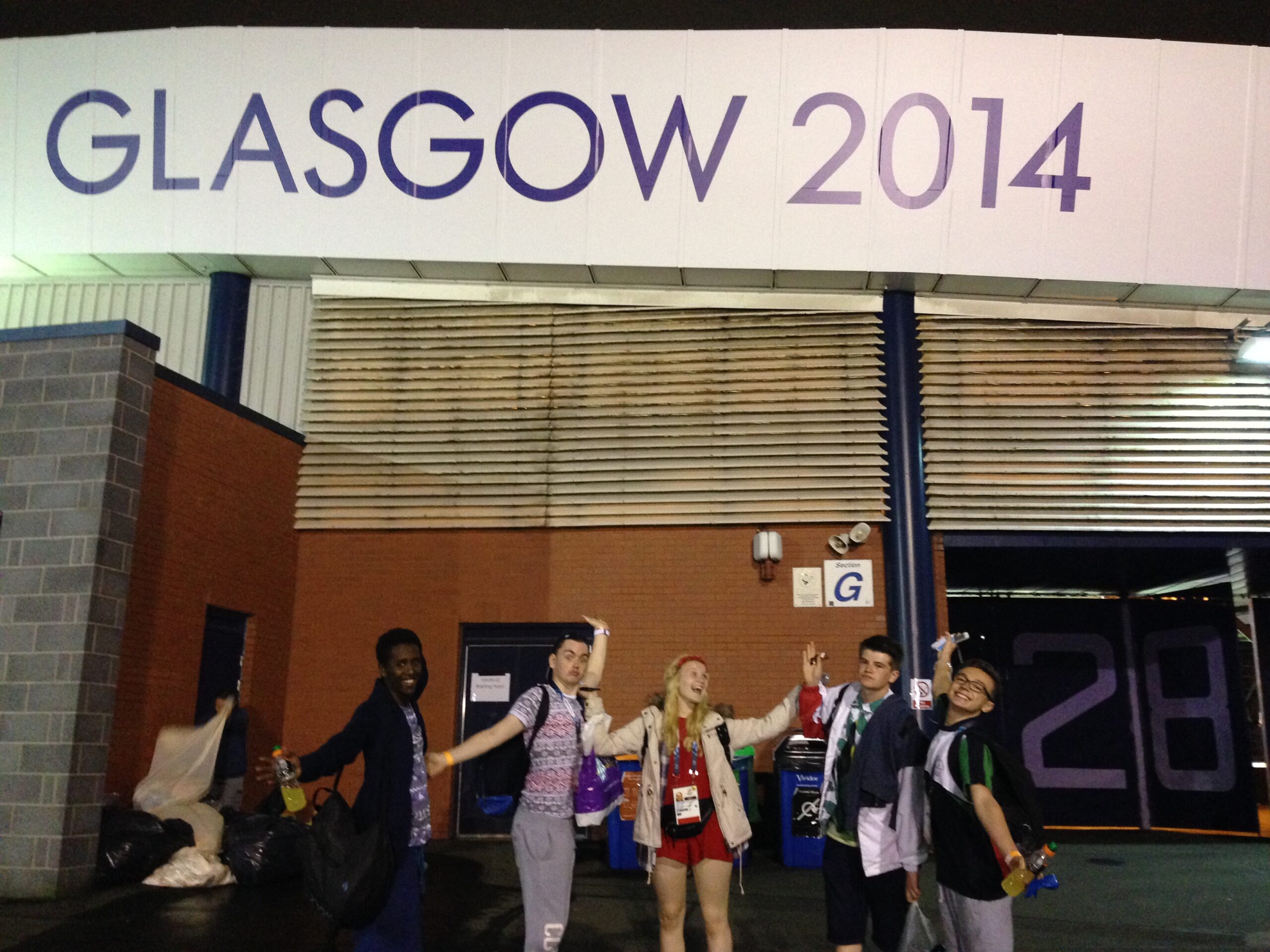
Open Ceremonies
These evaluations bring together learning from Glasgow 2014 on two ways we can maximise the power of event volunteering


Volunteering Support Pots
Volunteering can be a pathway to increased wellbeing – but not everyone has equal access. One of the ways Glasgow 2014 sought to remove barriers was through a Big Lottery and Spirit of 2012 funded project to give direct grants – ‘Volunteer Support Pots’ to people to remove financial barriers to volunteering .
The effectiveness of the Volunteer Support Pots was evaluated by the University of Strathclyde. The report found:
- General satisfaction with the scheme, with 90% of participants saying it was convenient to access and 85% found the communication with the team effective.
- Participants liked that they were trusted to spend the funding in ways that would help them to volunteer – though the high levels of trust may also increase the proportion of funding going to those who had less need for it
- In the second phase, a desire to give almost all applicants at least some contribution to their costs, spread the funding too thinly, and did not cover the majority of the costs involved in volunteering.
- There may be an argument for more targeted funding in the future, as well as more transparency about how sums would be awarded.
- It would have been useful to have more data about the profile of volunteers to understand their barriers, and to be able to categorise the ways in which the funding was spent. However asking for this information may have undermined trust or created barriers in itself.
Download:
- Volunteer Support Pot Evaluation – Full Report, University of Strathclyde
- Volunteer Support Pot Evaluation – Exec Sum, University of Strathclyde
A deep dive into the use and effectiveness of the access pot for Glasgow 2014 volunteers.
Ongoing volunteering
It is difficult to draw definitive conclusions about increases in long term volunteering, and how these are connected to Glasgow 2014 and the follow up work undertaken by Volunteer Scotland and Voluntary Arts Scotland. The post-event volunteering survey found that 89% of volunteers had increased their interest in undertaking arts and volunteering opportunities.
The follow up surveys which took place in December 2014 and March 2015 is an important attempt to understand long term behaviour changes. It explores both whether people had increased their volunteering, and the extent to which they attribute that to the follow up activities specifically, as well as simply the inspirational effect of the ceremonies. In the short term, the survey found that volunteering at least a few times a year had increased from 6% to 21% for Cast Members. However, as less than 100 people completed the follow up survey it is difficult to understand if these results are representative of the whole volunteer workforce – and specifically, those with additional barriers to participation.
The report identifies some success factors for creating ongoing volunteering from an event including:
- The inspirational effect of the event itself – many volunteers spoke about what an amazing opportunity it was as well as how it had increased their confidence to do new things
- Ability to contact volunteers – Volunteer Scotland and Voluntary Arts Scotland spoke about the helpful contribution of the Glasgow 2014 team so that their messages could get to volunteers
- Time to reach out to organisations to identify post-volunteering opportunities and a range of routes to showcase them from special events to an existing web platform.
Download:
- Casting On Evaluation, Volunteer Scotland & Voluntary Arts Scotland
A report exploring the methods used to transition Glasgow 2014 volunteers into ongoing volunteering.
